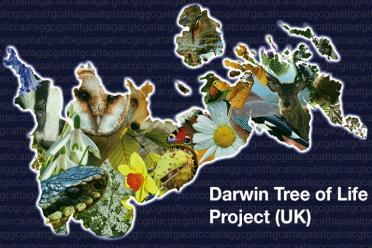
The UK arm, known as the Darwin Tree of Life Project, officially launches today in London alongside the global effort, the Earth BioGenome Project (EBP). The launch is marked by a gathering of key scientific partners and funders from around the globe to discuss progress in organising and funding the project. The Earth BioGenome Project will ultimately create a new foundation for biology to drive solutions for preserving biodiversity and sustaining human societies.
Preserving and encouraging biodiversity is essential to all living things. As humans, we are part of a natural ecosystem where we rely on our environment to give us oxygen to breathe, soak up carbon emissions from the atmosphere and balance the ecological food-chain. To protect our planet, we need to ensure that biodiversity has the resilience to withstand the mounting pressures of climate change and an ever-growing population.
EI has been involved in several genomics projects which were the foundation for the Tree of Life Project such as Genome 10k and the Vertebrate Genomes Project, protist genomics, plant genomics and vertebrate genomics. A specialist challenge for the new project, EI is likely to be involved in the sampling and sequencing of protists (single-celled eukaryotes - organisms with a nucleus) and the analysis of vertebrate genomes, while an established history of decoding important and complex plant genomes such as wheat will aid in the sequencing and assembly of plant genomes.
Pivotal to the Institute's strategy is understanding how to harness biodiversity to improve agriculture. The Darwin Tree of Life project will provide a wealth of information of thousands of species which will inform EI scientists how genomes have adapted to specific environments and be utilised in, for example, crop plants. The Tree of Life dataset will also provide a basis to understand how genes work in a network to give rise to specific traits (or phenotypes) such as disease resistance or the ability to survive in extreme environments.
Director of Earlham Institute Prof Neil Hall, said: “The whole concept of the DTOL project is central to our core strength in harnessing ‘big data’ to bring a new understanding to how organisms and ecosystems work - and there are few research Institutes as well suited to contribute to this. Our expertise in assembly and network biology should ensure we can derive biological understanding from the datasets that will come from the UK-wide species project.
“I am really excited about EI being part of this project as it complements our data-driven biology and technology focus, with our specific interests in biodiversity and agriculture. There are huge opportunities here for academics and industrial scientists to make major breakthroughs and we hope to ensure that as well as generating an important dataset, we also uncover new biology by applying our advanced skills in computational analysis, functional genomics and synthetic biology.”
A greater understanding of Earth’s biodiversity and the responsible stewarding of its resources are among the most crucial scientific and social challenges of the new millennium. The overcoming of these challenges requires new scientific knowledge of evolution and interactions among millions of the planet’s organisms.
Professor Melanie Welham, the Biotechnology and Biological Sciences Research Council (BBSRC) Executive Chair, added: “The Darwin Tree of Life project represents a significant investment, reflecting the importance of this study. The Earlham Institute, one of BBSRC’s strategically funded institutes, will be playing an important part in this epic DNA sequencing project. As part of UK Research and Innovation - BBSRC continues to support investment in genomics, it helps us understand fundamental aspects of biology and to improve crops and livestock by exploiting knowledge of genetic diversity. This is an exciting project that has real potential to underpin future innovation.”
The Sanger Institute will serve as the genomics hub in the UK, and alongside EI, will collaborate with the Natural History Museum in London, Royal Botanic Gardens, Kew, Edinburgh Genomics, University of Edinburgh, EMBL-EBI and others in sample collection, DNA sequencing, assembling and annotating genomes and storing the data.
The Darwin Tree of Life project is estimated to cost approximately £100 million over the first five years, and the sequencing of 66,000 species’ genomes will take around 10 years.
To mark the 25th anniversary of the Wellcome Sanger Institute, the institute and its collaborators used PacBio® long-read technology to sequence the genomes of 25 UK species for the first time*, including Red and Grey squirrels, the European robin, Fen raft spider and Blackberry. The insights gained from the 25 Genomes Project form a basis for scaling up to sequence the genomes of 66,000 species.
The Darwin Tree of Life project is now possible due to recent and expected advances in sequencing and information technology that will enable the reading and interpretation of thousands of species’ genomes each year by the Sanger Institute and its partner institutions across the UK. All of the data will be stored in public domain databases and made freely available for research use.
Sequencing the species in the UK and worldwide will revolutionise our understanding of biology and evolution, bolster efforts to conserve, help protect and restore biodiversity, and in return create new benefits for society and human welfare.
Professor Sir Mike Stratton, Director of the Wellcome Sanger Institute, said: “Globally, more than half of the vertebrate population has been lost in the past 40 years, and 23,000 species face the threat of extinction in the near future. Using the biological insights we will get from the genomes of all eukaryotic species, we can look to our responsibilities as custodians of life on this planet, tending life on Earth in a more informed manner using those genomes, at a time when nature is under considerable pressure, not least from us.”
Professor Harris Lewin, University of California, Davis, United States and Chair of the Earth BioGenome Project, said: “The Darwin Tree of Life Project is a tremendously important advance for the Earth BioGenome Project and will serve as a model for other parallel national efforts. The Wellcome Sanger Institute brings decades of experience in genome sequencing and biology to help build the global capacity necessary to produce high-quality genomes at scale. The Earth BioGenome Project and its partner organizations welcome the outstanding leadership that the Wellcome Sanger Institute brings to our efforts to sequence all known eukaryotic life on our planet.”
Sir Jim Smith, Director of Science at Wellcome, said: “When the Human Genome Project began 25 years ago, we could not imagine how the DNA sequence produced back then would transform research into human health and disease today. Embarking on a mission to sequence all life on Earth is no different. From nature, we shall gain insights into how to develop new treatments for infectious diseases, identify drugs to slow ageing, generate new approaches to feeding the world or create new biomaterials.”

